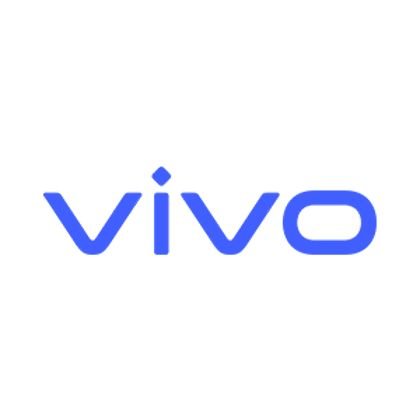
Blockchain technology has the potential to revolutionize supply chain management by providing unprecedented transparency, security, and efficiency. The supply chain involves a complex network of entities, including suppliers, manufacturers, distributors, retailers, and customers. Managing this network requires accurate tracking, efficient logistics, and robust communication among all parties. Blockchain, with its decentralized and immutable nature, offers a solution to many of the challenges faced by traditional supply chain systems. In this article, we will explore how blockchain can be integrated into supply chain management and the benefits it offers.
Key Features of Blockchain Relevant to Supply Chain Management
1. Transparency: Blockchain provides a transparent ledger where all participants can view and verify the history of transactions. This transparency ensures that all parties have access to the same information, reducing the likelihood of disputes and fraud.
2. Immutability: Once data is recorded on the blockchain, it cannot be altered or deleted. This immutability ensures the integrity of the data, making it a reliable source of truth for tracking the movement and provenance of goods.
3. Decentralization: Blockchain operates on a decentralized network of nodes, eliminating the need for a central authority. This decentralization reduces the risk of a single point of failure and enhances the security of the system.
4. Smart Contracts: Smart contracts are self-executing agreements with the terms written into code. They automatically enforce the terms of a contract when predefined conditions are met, streamlining processes and reducing the need for intermediaries.
Applications of Blockchain in Supply Chain Management
1. Provenance Tracking: One of the most significant benefits of blockchain in supply chain management is its ability to track the provenance of products. By recording every step of the production and distribution process on the blockchain, companies can provide consumers with detailed information about the origin and journey of a product. This is particularly valuable for industries like food, pharmaceuticals, and luxury goods, where authenticity and safety are critical.
2. Inventory Management: Blockchain can improve inventory management by providing real-time visibility into stock levels and product movement. This helps companies optimize their inventory levels, reduce waste, and ensure that products are available when needed. With accurate and up-to-date information, businesses can make better decisions regarding procurement, storage, and distribution.
3. Quality Control: Blockchain can enhance quality control by providing a tamper-proof record of a product’s journey through the supply chain. Any issues or defects can be traced back to their source, allowing companies to quickly identify and address problems. This traceability is essential for maintaining high-quality standards and ensuring compliance with regulations.
4. Efficient Payments and Settlements: Blockchain can streamline payment processes by automating transactions through smart contracts. These contracts can trigger payments automatically when certain conditions are met, such as the delivery of goods or completion of a service. This automation reduces the need for manual intervention, speeds up the payment process, and reduces the risk of errors and disputes.
5. Anti-Counterfeiting: Counterfeiting is a significant issue in many industries, including pharmaceuticals, electronics, and luxury goods. Blockchain can help combat counterfeiting by providing a secure and verifiable record of a product’s origin and ownership. By scanning a product’s QR code or other identifiers, consumers and retailers can verify its authenticity and ensure that it has not been tampered with.
6. Sustainability and Ethical Sourcing: Consumers are increasingly concerned about the ethical and environmental impact of the products they purchase. Blockchain can provide transparency into the sourcing and production processes, allowing companies to demonstrate their commitment to sustainability and ethical practices. This information can include details about the materials used, the working conditions of laborers, and the environmental impact of production.
Challenges and Considerations
While blockchain offers many advantages for supply chain management, there are also challenges and considerations to keep in mind:
1. Scalability: Blockchain networks can face scalability issues, particularly with large volumes of transactions. Ensuring that the network can handle the scale of a global supply chain is crucial for widespread adoption.
2. Integration with Existing Systems: Integrating blockchain with existing supply chain management systems can be complex and costly. Companies must ensure that their legacy systems can communicate with blockchain platforms and that data can be accurately transferred and synchronized.
3. Data Privacy and Security: While blockchain provides transparency, it is also essential to protect sensitive information. Companies must strike a balance between transparency and privacy, ensuring that proprietary information and personal data are secure.
4. Standardization and Interoperability: For blockchain to be effective in supply chain management, there must be standardization and interoperability across different platforms and networks. This requires collaboration among industry players, technology providers, and regulators.
5. Regulatory and Legal Considerations: The regulatory environment for blockchain is still evolving, and companies must navigate complex legal issues related to data ownership, smart contracts, and cross-border transactions.
Conclusion
Blockchain technology has the potential to transform supply chain management by providing greater transparency, efficiency, and security. By enabling real-time tracking, enhancing quality control, and automating processes, blockchain can address many of the challenges faced by traditional supply chain systems. However, for blockchain to reach its full potential in supply chain management, companies must overcome challenges related to scalability, integration, and regulation. As the technology continues to evolve and mature, it will likely play an increasingly important role in shaping the future of global supply chains.
ALSO READ: The Impact of GDPR on Data Security








